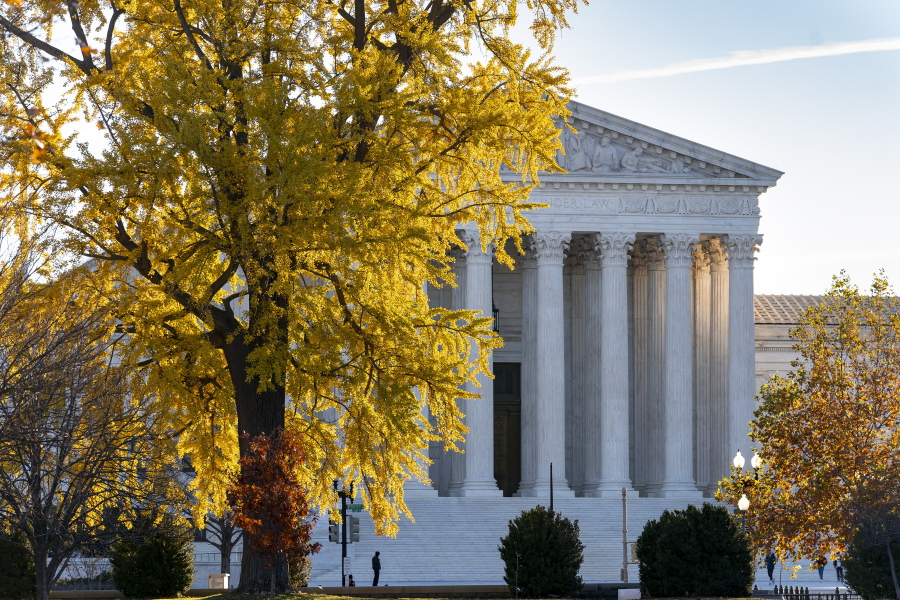WASHINGTON — The Supreme Court appeared ready Wednesday to rule that religious schools can’t be excluded from a Maine program that offers tuition aid for private education, a decision that could ease religious organizations’ access to taxpayer money.
After nearly two hours of arguments, the court’s six conservative justices seemed largely unpersuaded by Maine’s position that the state is willing to pay for the rough equivalent of a public education but not religious inculcation.
The court’s three liberal justices signaled that they were more aligned with the state’s arguments.
The case is the latest test of religious freedoms for a Supreme Court that has favored faith-based discrimination claims, including in other state programs that had sought to keep public money from religious organizations.
Justice Brett Kavanaugh used an example of neighbors, one choosing a secular private school and the other opting for a religious school for their children. The first family gets the state aid, but not the second.
“That’s just discrimination on the basis of religion right there at the neighborhood level,” Kavanaugh said.
But Justice Elena Kagan said Maine had seemed to design its program to avoid raising “questions of religious favoritism, religious division and so forth.”
In largely rural Maine, the state allows families who live in towns that don’t have public schools to receive public tuition dollars to send their children to the public or private school of their choosing. The program excludes religious schools.
Students who live in a district with public schools or in a district that contracts with another public system are ineligible for the tuition program.
Parents challenging the program argue that the exclusion of religious schools violates their religious rights under the Constitution. Teacher unions and school boards say states can impose limits on public money for private education without running afoul of religious freedoms.
Most of the justices attended religious schools, and several send or have sent their children to them. No one spoke of those experiences in court Wednesday.
To qualify for the Maine program, schools don’t even have to be in the state, or the United States for that matter, said Michael Bindas, a lawyer with the libertarian public interest law firm Institute for Justice who argued on behalf of the parents.
But Christopher Taub, Maine’s chief deputy attorney general, told the justices that the critical issue is not the location of the school, but whether it is “inculcating people in a particular religion.”
Taub drew the ire of Justice Samuel Alito, who noted that parents could send their children to elite private schools and have the state pick up part of the tab.
“That’s the rough equivalent of a public education?” Alito asked derisively.



